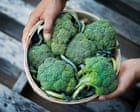The Amazon Speaks at COP30
nathan.reece@r…
10 November 2025
For the first time ever, the UN’s annual climate summit — COP30 — is being held in the Amazon. The host city of Belém in Brazil sits near the edge of the world’s largest rainforest: a vast, living ecosystem that absorbs billions of tonnes of carbon, regulates global rainfall, and sustains one in every ten known species on Earth.
The Amazon is home to more than 1.5 million Indigenous people and stores around 150–200 billion tonnes of carbon in its trees and soils. Scientists warn that if deforestation pushes beyond a critical “tipping point,” vast areas could transform into dry savannah, releasing that carbon back into the atmosphere and accelerating global warming.
Brazil’s story captures both the hope and contradiction of climate politics. Under the current Brazilian President Luiz Inácio Lula da Silva, deforestation in the Amazon fell by nearly 50% between 2022 and 2024, reversing the record-breaking losses seen under former president Jair Bolsonaro. In 2024 alone, Brazil’s greenhouse gas emissions dropped 17% — the largest annual reduction in 15 years. These gains made Brazil one of the few major economies actually cutting emissions in line with the Paris Agreement’s goals.
And yet, Lula’s government has also approved new offshore oil exploration near the mouth of the Amazon River. The tension is clear: Brazil is trying to fund its green transition through fossil fuel revenues — a balancing act shared by many developing nations caught between urgent climate goals and pressing economic needs.
For Indigenous leaders, however, the message is unequivocal. They are demanding firm recognition of land rights, direct access to climate finance, and explicit protection from extractive industries like mining, logging, and oil drilling. Studies show that deforestation rates are up to three times lower in Indigenous-managed territories — proof that Indigenous stewardship is one of the most effective tools for protecting the planet’s lungs.
Brazil has pledged to include a record 1,000 Indigenous delegates at COP30 and to broadcast parts of the summit in Indigenous languages. But inclusion isn’t enough without influence. As Shuar leader Juan Carlos Jintiach put it: “We have been seeing all of these changes, and we are the most affected. We want to present solutions.”
The Amazon’s health shapes the climate right around the world — influencing rainfall, crop yields, and global weather extremes. Protecting Indigenous rights in Brazil isn’t just a moral cause; it’s climate action in its purest form.






